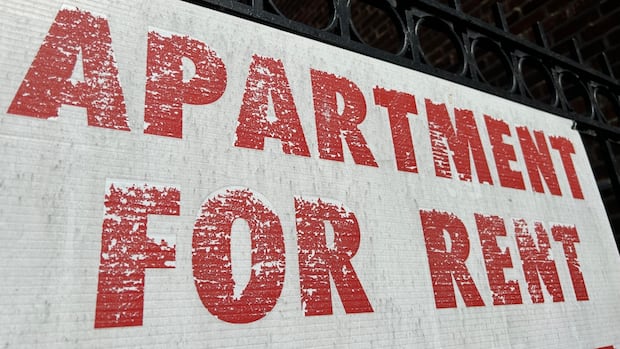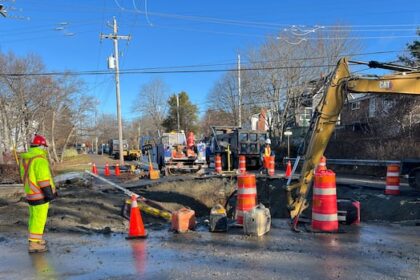PEIOne MLA is pushing for some big changes to P.E.I’.s Residential Tenancy Act to better protect landlords and their investments.’Majority of tenants actually have the ability to afford modest increases,’ says TriversDelaney Kelly · CBC News · Posted: Aug 28, 2025 7:02 PM EDT | Last Updated: 4 hours agoBackbench Progressive Conservative MLA calling for changes to P.E.I.’s Residential Tenancy ActMLA Brad Trivers has posted a 45-page document outlining changes he’d like to see to P.E.I.’s Residential Tenancy Act. He says there should be more protection for landlords on the Island. As CBC’s Cody MacKay reports, he’s planning to hold consultations on his ideas soon, and wants Islanders to tell him what they think. A backbench MLA is pushing for some big changes to P.E.I.’s Residential Tenancy Act that he says would better protect landlords and their investments.Progressive Conservative MLA Brad Trivers has been doing some research on landlord rights and rent increases, among other things, and has posted a 45-page document outlining the changes he would like to see. Trivers hosted a meeting Thursday to outline these suggestions, on the property of a P.E.I. landlord who struggled earlier this year to evict her tenants. “The Residential Tenancy Act probably is skewed toward… protecting tenants, and so frankly, it’s more concessions to landlords that need to take place to balance it out and make it fair — and that’s probably why you don’t see many tenants here,” Trivers, the MLA for Rustico-Emerald, said at his event. “But I want to make it very clear: I want to hear from tenants. I want to make sure that any assumptions I’m making are correct.” Prince Edward Island’s apartment vacancy rate in 2024 was 0.8 per cent, the lowest in Canada, with growing demand outpacing the construction of new housing units. A low vacancy rate typically leads to higher rents being charged for the units that do come on the market. (Josh Crabb/CBC)The suggested amendments in his document include: Giving stronger powers to IRAC to make quicker decisions. Creating an Office of Residential Tenancy Services to advise landlords and tenants and enforce the act, without getting IRAC involved in some cases. Crafting new formulas for greater-than-allowable rent increases, when capital expenditures are made to improve the unit, for example. Bringing historically lower rents up to “fair market value” when current tenants move out. Bringing in legal consequences for tenants who cause property damage, and making it easier for landlords to inspect their rented-out properties. Reducing the length of time a landlord needs to give tenants when delivering personal eviction notices, and tying tenant compensation to the number of years spent in the unit. Guaranteeing confidentiality for landlords’ financial data in applications for rent increases. Allowing court-ordered seizure of a tenant’s employment wages for non-payment of rent or for breaking a lease. Trivers said he is open to making changes in his proposals, based on what Islanders tell him during an online consultation phase before he brings his ideas to the legislature. “I just want people to go through every one of them and say whether they fall into one of those four categories,” he said.”If it’s something you don’t care about, just say ‘No opinion’ and move on. And once we get that done, I feel we’ll get a really strong base to finalize the legislative wording and get the private member’s bills in place,” Trivers said. PC MLA Brad Trivers is shown at his publicity event in Wheatley River on Thursday, along with landlord Thamara DeVries and June Ellis of the Residential Rental Association of P.E.I. (CBC News)Majority of tenants can afford ‘modest increases’One change that Trivers suggests is raising the yearly cap on allowable rent increases from three per cent to 10 per cent. He said while some people may struggle with rent increases, others on the Island can afford to pay more for their rented apartments or houses. Trivers said people can tend to “paint all tenants with the same brush. There are definitely a subset of tenants that are low income and you know, a one-per-cent increase might be too much for them. We have government programs that can offer supports for those low-income individuals.”I believe the majority of tenants actually have the ability to afford modest increases that are tied to expenses and that are fair,” he said.June Ellis, executive director of the Residential Rental Association of P.E.I., says she will be sharing the link to the 45-page document on the MLA’s site with members of the association. (Submitted)June Ellis, the executive director of the Residential Rental Association of P.E.I., said she likes a lot of the proposed suggestions and plans to share the link to the 45-page document with members of the association. “I think this is a step in the right direction,” she said Thursday.The thing that stands out to her the most is the suggestion to allow higher rent increases in some cases. “If a tenant voluntarily moves out, [members] want to be able to raise the rent because a lot of the rents… historically have been very low,” Ellis said.ABOUT THE AUTHORDelaney Kelly is a journalist with CBC P.E.I. who studied journalism at Concordia University. She was previously a reporter at Iori:wase in Kahnawake Mohawk Territory. With files from Cody MacKay
MLA calls for major changes to P.E.I’.s Residential Tenancy Act to protect landlords











